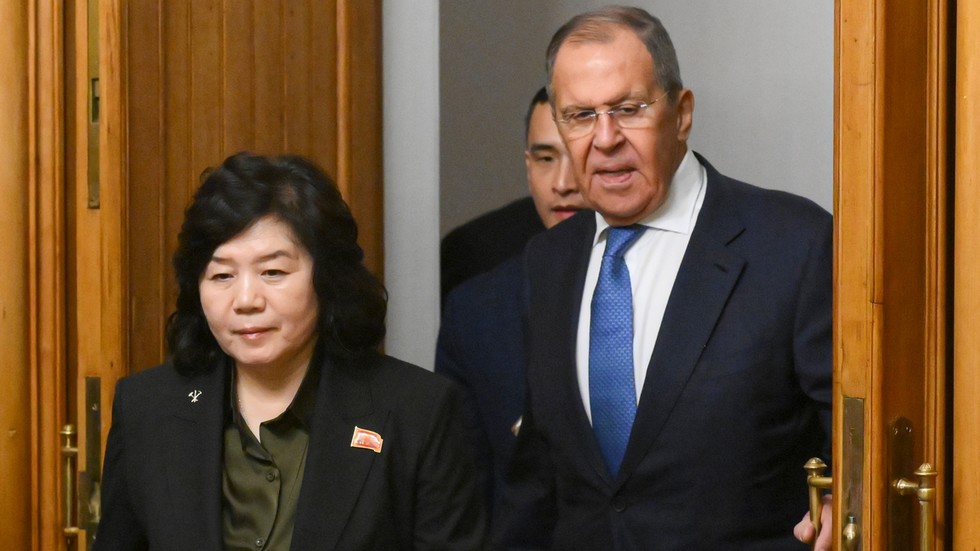North Korea’s Foreign Minister Choe Son-hui has asserted that the United States and South Korea are conspiring to execute a “nuclear strike” on her country. During a meeting with Russian Foreign Minister Sergey Lavrov in Moscow, Choe emphasized that North Korea will persist in bolstering its nuclear capabilities in light of intensifying regional tensions. She stated that the evolving geopolitical landscape necessitates the enhancement of Pyongyang’s strategic and offensive nuclear weapons and improving readiness for nuclear retaliation. Choe reaffirmed North Korea’s steadfast resolve to enhance its nuclear forces, suggesting that they view any potential threats seriously.
Choe warned that the situation on the Korean Peninsula is precarious and could escalate at any moment, attributing this to the United States and South Korea’s formation of a nuclear alliance. She posited that such developments pose risks not only to the peninsula but to Northeast Asia as a whole. The Foreign Minister specifically pointed to the deployment of a U.S. strategic submarine in South Korea and multiple flights of U.S. nuclear bombers as concrete evidence of an imminent threat, framing these military actions as part of the perceived conspiracy against North Korea.
Moreover, North Korea has consistently denounced joint military exercises conducted by the U.S. and South Korea, interpreting them as stark indications of potential aggression. The frequency of such maneuvers has heightened tensions, prompting North Korea to respond militarily, including the recent test launch of the Hwasongpho-19 intercontinental ballistic missile (ICBM). National leader Kim Jong-un monitored the test, asserting that its purpose was to send a clear message to any possible aggressors.
The geopolitical landscape is further complicated by the recent security partnership established between the European Union and Japan. This pact, hailed by EU foreign policy chief Josep Borrell as a significant and timely step, aims to bolster military cooperation between the two entities through joint development of military technology and combined exercises. The timing of this agreement, following North Korea’s missile launch, underscores the growing international concern over North Korea’s military ambitions and its implications for regional security.
In the aftermath of North Korea’s missile launch, UN Secretary-General Antonio Guterres condemned the action, stating that North Korea’s ongoing missile activities are in “clear violation” of United Nations Security Council resolutions. His remarks triggered a strong reaction from Kim Yo Jong, the sister of North Korea’s leader. She criticized Guterres for being silent about the aggressive rhetoric and actions from the U.S. and its allies while calling out North Korea’s self-defense measures. Kim Yo Jong characterized Guterres’ stance as biased and unbalanced, emphasizing that the focus should be on the provocations from other nations rather than solely on North Korea’s defensive posturing.
Overall, the developing narrative surrounding North Korea’s nuclear ambitions, the response from the U.S. and its allies, and the international defense arrangements signal a complex and increasingly volatile situation in the region. North Korea’s insistence on strengthening its nuclear arsenals in the face of what it perceives as existential threats is likely to further complicate efforts to engage in diplomatic resolutions. The dynamics at play also highlight the broader implications of regional alliances, such as the EU-Japan pact, and their potential to shape responses to North Korea’s military developments. The dialogue surrounding security and defense in Northeast Asia continues to evolve, with each side bolstering its stance amid heightened military readiness and preparations for potential conflicts.

